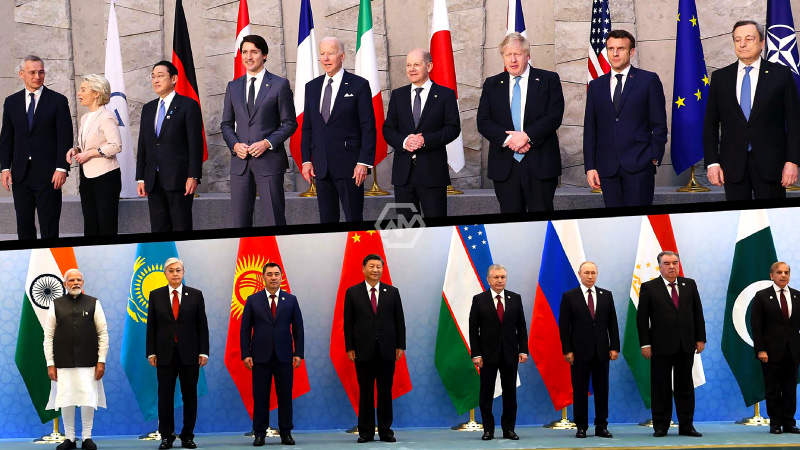Russia has escaped the NATO sanctions’ clutches after a GDP decline of 2.1% in 2022 which was less severe than anticipated, and the IMF expects growth of 0.3% in 2023. Only a few months ago, political figures and conventional economists predicted that Russia’s economy would be completely destroyed, leaving the country in ruins and eliminating any hope of a continuing military presence in Ukraine.
Vladimir Putin “had no idea what was coming,” according to Joseph Biden, who promised to “crater” Russia’s economy. During the initial round of Western sanctions, French Finance Minister Bruno Le Maire warned that Russia would collapse.
The Russian Economy
Politico praised the “benefits” of the Russian Federation’s impending collapse. Some economic fundamentals that ought to have been clear have been hidden through propaganda.
The emergence of Russia’s economic resilience is not a surprise to many in the alternative media, who noted a year ago that China, India, and Brazil, three of Russia’s main trading partners, account for about 24% of the world’s GDP and a third of the world’s population. Also, they are production-based nations that produce a sizable amount of the world‘s goods.
Oil and natural gas are among the abundant raw materials and resources in Russia, providing lucrative trading prospects for countries willing to disregard western sanctions.
- A GDP decline of 2.1% in 2022 and the IMF expects growth of 0.3% in 2023.
- China, India, and Brazil are the three of Russia’s main trading partners, accounting for about 24% of the world’s GDP.
- Russia remains mostly unscathed by sanctions and its exclusion from the SWIFT network.
The US and NATO’s attempts to wage economic warfare over the turmoil in Ukraine have actually honed links between the BRICS members rather than sever them.
The US dollar is no longer the world reserve currency thanks to the BRICS’ bilateral commerce, and China is pursuing closer military ties with Russia in addition to its increased purchases of Russian goods.
Their growing connections to Russia could make it harder to defend Taiwan or other friends in the Pacific given the rising likelihood of future confrontations between the US and China. In other words, it’s possible that the US government harmed its own interests.
Notwithstanding all the media reports of an impending catastrophe, the most recent IMF assessment of the state of the world economy shows that Russia remains mostly unscathed by sanctions and its exclusion from the SWIFT network.
Regardless matter whatever “side” one favor in the continuing conflict in Ukraine, one must concede that financial tools have largely failed. Instead, sanctions have shown that there just isn’t a global agreement on Ukraine, which contradicts the popular narrative that has been propagated for the past year.



